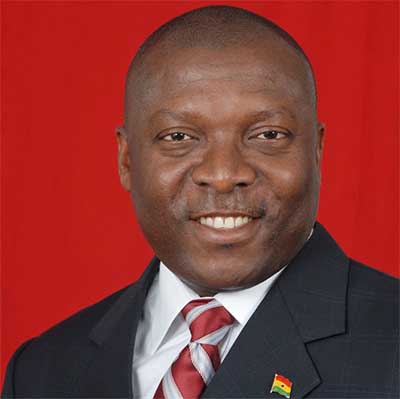Federick Opare-Ansah
Parliament was yesterday unanimous in kicking against a new proposed amendment by the New Patriotic Party (NPP) Member of Parliament (MP) for Suhum, Federick Opare-Ansah, who was trying to introduce a time frame within which the bill can become operational after the President has assented to it.
The Suhum MP’s new amendment which was proposed at the tail end of the consideration of the bill wanted it to come into force 12 months after the President has assented to it, but his fellow MPs especially those from the minority side said that Parliament on its own cannot adopt a new amendment which was not in the original bill.
According to the MPs, when the new bill is accepted it will indict Parliament which has committed itself in going through all the proposed amendments during consideration stage for it to be passed finally before Parliament rises for the Easter break.
The National Democratic Congress (NDC) MP for Tamale Central, Inusah Fuseini, said if there should be such major amendment or insertion into the bill, it should come from the Attorney-General (executive) and not a member of Parliament because it is the President who will assent for the law to come into force.
According to him, no official reason was given to the proposed amendment for the time frame of 12 months to be put into the bill for the Act to become operational. He said Parliament does not have the constitutional power to introduce such a clause in the bill.
The NDC MP for Bawku Central, Mahama Ayariga, however, disagreed with the NDC MP for Tamale Central that Parliament does not have the power to introduce a time frame into a bill, stressing that Parliament can indeed do that because when a bill is brought to the House by the executive for consideration, it becomes the property of Parliament. This means that Parliament can have the power to determine when the bill will take effect.
He said the only problem is that the amendment for the introduction of time frame did not come with any reason and for that matter Parliament cannot accept such amendment based on the law.
He therefore proposed that the amendment by the MP for Suhum be discarded to enable the bill to be passed into law.
The Speaker of Parliament, Prof Mike Oquaye, said that laws passed can never take retrospective effect but rather ‘futuristic’ effect and so there is nothing wrong with the proposal for the ‘futuristic’ effect of the RTI bill.
He however said that since Parliament has promised the people that the bill will be passed before Easter for it to take effect, it would be ‘suicidal’ and ‘disingenuous’ for Parliament to take responsibility for the 12-month time frame to be inserted into the bill, because it will mean that Parliament has not been faithful to the people of the country.
He has therefore given the executive up to Tuesday to come and confer with the leadership of Parliament if it is in agreement with the new proposed amendment then the amendment will stand in the name of the executive and introduced in the bill so that the executive will take full responsibility for that time frame amendment and not Parliament.
By Thomas Fosu Jnr


